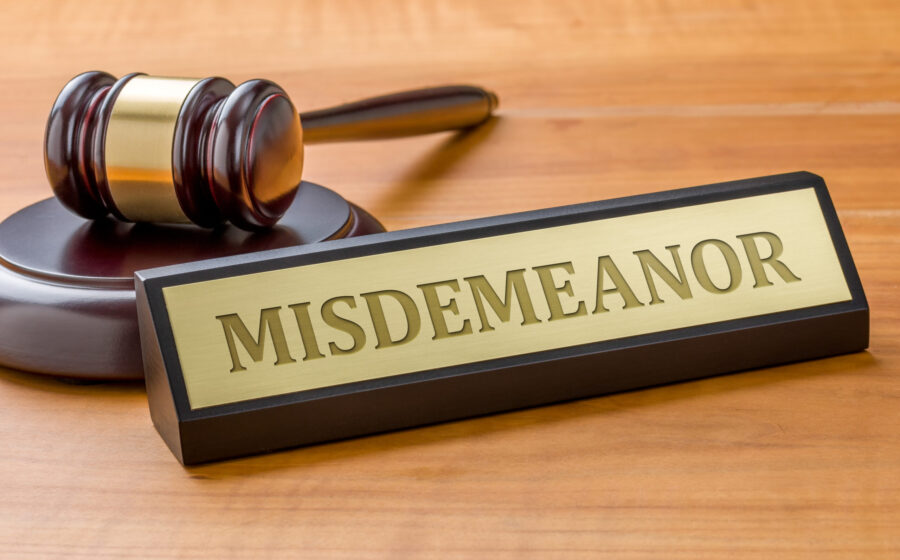Understanding the Differences Between Misdemeanors and Felonies

Navigating the legal system can be a daunting task, especially when it comes to understanding the differences between misdemeanors and felonies. For residents of Richmond, VA, knowing these distinctions is crucial, particularly if you’re facing charges and need to hire a criminal defense lawyer. This blog post aims to clarify these legal terms, their implications, and why it’s vital to seek professional legal advice. By the end of this article, you’ll have a comprehensive understanding of what differentiates misdemeanors from felonies, and how these differences can impact your life.
What Constitutes a Misdemeanor
Misdemeanors are considered less severe crimes compared to felonies, but they still carry significant consequences. In Richmond, VA, misdemeanors can range from minor infractions to more serious offenses, each with its own set of penalties.
Types of Misdemeanors
Misdemeanors in Richmond include offenses such as petty theft, simple assault, and public intoxication. Traffic violations like driving under the influence (DUI) also fall under this category. These crimes are generally punishable by fines, community service, or short-term imprisonment, usually less than a year in a local jail.
Penalties for Misdemeanors
The penalties for misdemeanors can vary widely. For example, a first-time DUI offense might result in a fine and mandatory alcohol education classes, while a second or third offense could lead to harsher penalties, including jail time. Understanding the specific penalties for misdemeanors in Richmond is essential for anyone facing such charges.
Local Examples
Consider the case of John, a Richmond resident who was charged with petty theft for shoplifting. John faced a fine and community service, but no jail time. However, had he committed a more serious misdemeanor, such as a repeat DUI offense, his penalties could have included jail time and a suspended license.
Understanding Felonies
Felonies are far more severe than misdemeanors and come with much harsher penalties. In Richmond, VA, felonies are classified into different categories based on the severity of the crime and the associated penalties.
Defining Felonies
Felonies encompass a broad range of serious crimes, including murder, rape, and armed robbery. These crimes are typically punishable by long-term imprisonment, hefty fines, and in some cases, the death penalty. The classification of felonies in Virginia ranges from Class 1 to Class 6, with Class 1 being the most serious.
Classifications and Penalties
Class 1 felonies, such as capital murder, carry the most severe penalties, including life imprisonment or the death penalty. Class 6 felonies, while still serious, have lighter penalties, such as one to five years in prison. Understanding these classifications can help you grasp the gravity of different felony charges.
Local Case Studies
Take, for example, the case of Sarah, a Richmond resident charged with armed robbery, a Class 3 felony. Sarah faced a potential 20-year prison sentence due to the severity of her crime. In contrast, Michael, who was charged with a Class 6 felony for grand larceny, faced a lesser penalty of one to five years in prison. These examples illustrate the wide range of penalties associated with different felony classifications.
Key Differences Between Misdemeanors and Felonies
Understanding the key differences between misdemeanors and felonies is crucial for anyone facing criminal charges in Richmond, VA. These differences can have significant legal, social, and long-term consequences.
Legal Consequences
The legal consequences of misdemeanors and felonies differ greatly. Misdemeanors usually result in shorter jail sentences, smaller fines, and less severe long-term impacts on one’s record. Felonies, on the other hand, can lead to lengthy prison sentences, substantial fines, and a permanent criminal record that can affect various aspects of your life, including employment and housing opportunities.
Social Consequences
The social stigma attached to felonies is much greater than that of misdemeanors. A felony conviction can affect your relationships, job prospects, and overall reputation. Employers, landlords, and even social circles may view you differently if you have a felony on your record. Misdemeanors, while still serious, generally carry less social stigma and are more likely to be forgiven over time.
Long-Term Impacts
Long-term impacts of misdemeanors and felonies can include difficulties in finding employment, loss of voting rights, and challenges in securing housing. Felonies have more severe long-term consequences, often making it difficult to reintegrate into society after serving time. Misdemeanors, while still impactful, typically allow for an easier path to rehabilitation and reintegration.
Conclusion
Understanding the differences between misdemeanors and felonies is crucial for anyone facing criminal charges in Richmond, VA. These distinctions can significantly impact your legal standing, social life, and future opportunities. If you find yourself entangled in the legal system, seeking professional legal advice is paramount. A skilled criminal defense lawyer can help you navigate these complexities and work towards the best possible outcome. Don’t hesitate to reach out to BainSheldon at 804-282-8625 for expert guidance and support.
By understanding the nuances between misdemeanors and felonies, you can better prepare yourself for any legal challenges that may come your way. Remember, knowledge is power, and being informed is the first step towards protecting your rights and future.






